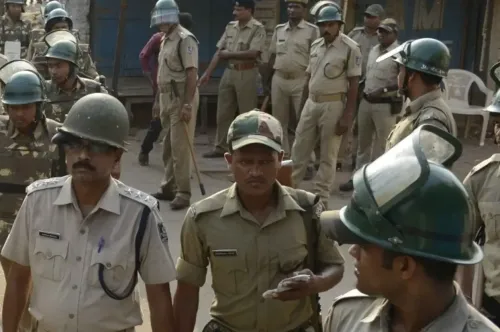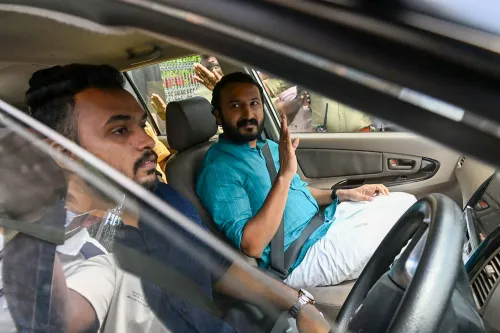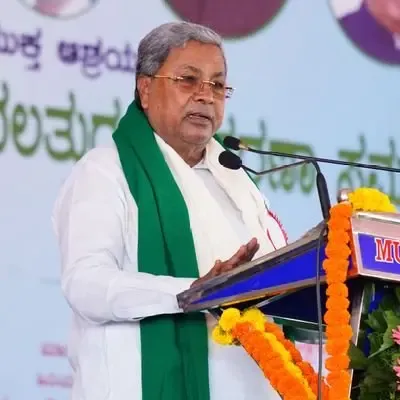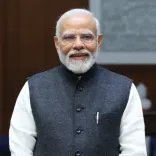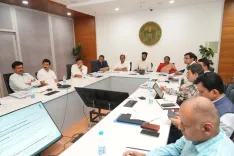Is the Trinamool Congress Facing a Divide Between 'Old and New' Leadership?

Synopsis
Key Takeaways
- Generational conflict is evident within the Trinamool Congress.
- Kunal Ghosh has openly criticized senior leaders.
- Abhishek Banerjee is emerging as a key figure for the younger faction.
- The party faces challenges from the BJP in upcoming elections.
- Calls for modernization may lead to internal strife.
New Delhi, Oct 4 (NationPress) Amid ongoing speculation regarding Trinamool Congress (TMC) leader Kunal Ghosh's enigmatic social media remarks aimed at senior party figures, who have remained reticent instead of defending the party, its chief Mamata Banerjee, and the West Bengal government, the topic has reignited the discourse on the 'old versus new' leadership within the party.
Ghosh is known for his bold statements, even when deemed politically or diplomatically inappropriate.
He criticized veteran Trinamool figures such as Sudip Bandyopadhyay, Sougata Ray, and Kalyan Banerjee, among other Lok Sabha candidates from his party, as the Assembly elections approach next year.
His involvement in an event organized by Bandyopadhyay's opponent reportedly cost him his party position.
Meanwhile, Abhishek Banerjee, Mamata Banerjee's nephew and presumed successor, is recognized for promoting younger Trinamool leaders.
Consequently, Ghosh's actions have led to speculation that he may be advocating on Abhishek Banerjee's behalf.
However, Ghosh quickly made a comeback.
Mamata Banerjee has consistently supported her chosen party nominees, all of whom have successfully returned to the Lok Sabha.
Nevertheless, tensions continue to simmer in the ongoing 'old versus young' conflict within the Trinamool Congress.
Critics attribute this to ideological differences between Mamata Banerjee and the three-time MP from Diamond Harbour, Abhishek Banerjee.
Calls for Abhishek Banerjee's leadership have even appeared on billboards.
There are unverified claims suggesting the presence of opposing 'camps', each aligned with Mamata Banerjee and Abhishek Banerjee.
Some 'followers' on one side have privately expressed that Mamata Banerjee's political and administrative techniques are 'outdated' and that the party needs to 'evolve'.
Conversely, Mamata Banerjee's loyal supporters argue that such 'evolution' is transforming into a 'corporate takeover' of the party.
Many senior figures reportedly opposed consulting with I-PAC, previously led by Prashant Kishor before his foray into politics.
However, it was the 'new' faction that is believed to have influenced Mamata Banerjee's decisions while facing off against the Bharatiya Janata Party (BJP), which has emerged as a significant political force in the state.
A section of Trinamool leaders has attempted to reframe the controversy with a call for 'Mamata Banerjee our leader, Abhishek our general'.
However, critics quickly pointed out that 'general' suggests the growing influence of Abhishek Banerjee, the Trinamool Congress National General Secretary, who appears to be steering the organization while Mamata Banerjee focuses on governance.
Interestingly, the Chief Minister herself previously acknowledged her insufficient time for party organization.
Simultaneously, when the state government faced criticism for various administrative failures, including the tragic incident involving an intern at Kolkata's R.G. Kar Hospital, senior leaders were noticeably absent in defending the government.
Some Trinamool officials spoke out against the administration and even joined in symbolic protests.
At that time, Ghosh again accused senior Trinamool leaders of failing to speak up and not taking responsibility for defending the party and the state administration.
A senior leader, part of the organizational team, privately criticized the state government for administrative shortcomings and stated that it should resolve issues independently without party involvement.
If this marks the onset of yet another controversy, it does not bode well for the ruling Trinamool Congress, with the West Bengal Assembly elections just months away.

